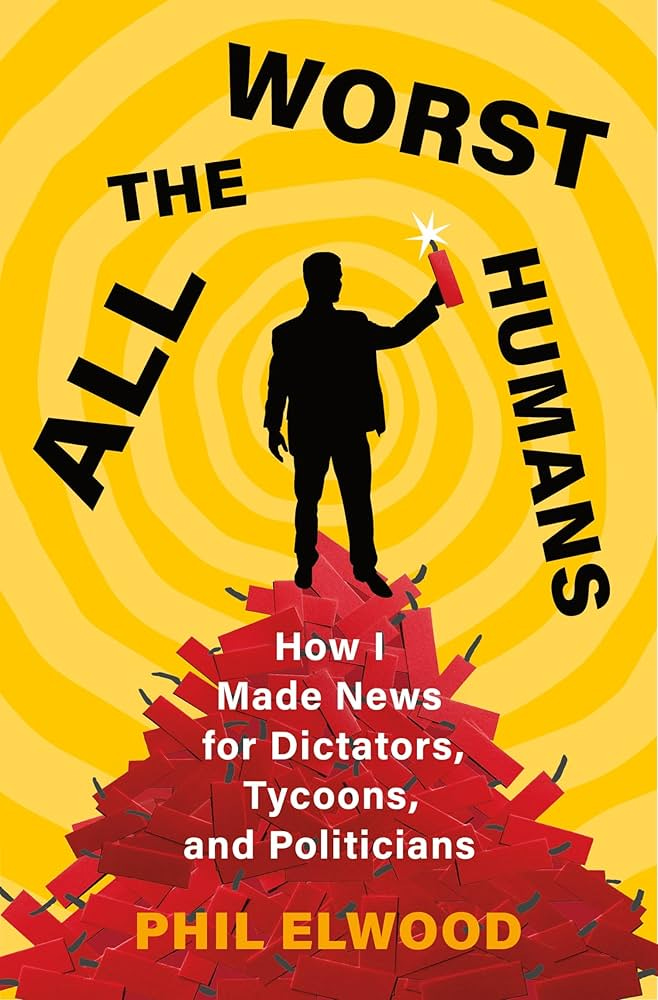The 262nd Block: Language, law, and the terrible, horrible, not so good, very bad media
Find an academic essay on the Belmarsh case inside
This week…
Your reading time is about 5 minutes. Let’s start.
I decided to share my Belmarsh case essay here. Honestly, I started to study law because I wanted to know how to read legislations and case laws in a breeze without breaking sweat. Now I’m also structuring and supporting legal arguments and stuff. I’m like Victor Garber or something.
Your Wikipedia this week: Indeterminacy debate
And now, a selection of top stories on my radar, a few personal recommendations, and the chart of the week.
ICYMI: The Previous Block was about how three (not two) is balance.
CORRECTION NOTICE: None notified.COMMUNICATIONS
The Poland-Africa alliance fighting disinformation
Angie Drobnic Holan for Poynter:
It wasn’t long ago that fact-checkers in Poland noticed a surge of online misinformation about Africa — anti-science claims about vaccines, anticolonialist claims involving Russia and anti-immigrant claims about refugees. The Polish Ministry for Foreign Affairs noticed it, too, and sought to fund independent journalism projects to do some debunking and fact-checking.
The result was a project called “TruthAfrica,” fact checks for Polish and European audiences about what was actually happening in countries like Nigeria, Algeria, Angola, Chad, Egypt, Uganda and Zambia.
But the fact-checkers in Poland who work at Pravda (“Truth”) realized they couldn’t do this work alone. They reached out to other fact-checkers in Africa who are part of the International Fact-Checking Network and found a partner in Code for Africa, a group that runs the fact-checking project PesaCheck and is also home to the continent’s largest civic technology and data journalism network.
Loosely linked:
Imagining how aliens might communicate prepares us for first contact and illuminates the nature of our own languages by Nikhil Mahant (Uppsala University) for Aeon.
Is Dua Lipa the best literary interviewer? by Joel Snape for The Guardian.
How to address misinformation without censorship by Sander van der Linden and Lee McIntyre for Time.
LAW
Wikipedia challenging UK law it says exposes it to “manipulation and vandalism”
Dan Milmo for The Guardian:
The charity that hosts Wikipedia is challenging the UK’s online safety legislation in the high court, saying some of its regulations would expose the site to “manipulation and vandalism”.
In what could be the first judicial review related to the Online Safety Act, Wikimedia Foundation claims it is at risk of being subjected to the act’s toughest category 1 duties, which impose additional requirements on the biggest sites and apps.
The foundation said if category 1 duties were imposed on it, the safety and privacy of Wikipedia’s army of volunteer editors would be undermined, its entries could be manipulated and vandalised, and resources would be diverted from protecting and improving the site.
Loosely linked:
Mexico sues Google over ‘Gulf of America’ name change by Danai Nesta Kupemba for BBC.
AfD sues national intelligence agency for extremist classification by Tahara Kamara (City St George's, University of London) for Jurist.
AI AND THE INTERNET
This Canadian pharmacist is key figure behind world’s most notorious deepfake porn site
Eric Szeto, Jordan Pearson, and Ivan Angelovski for CBC:
David Do is, on the surface, unassuming and respectable. He owns a house just outside Toronto with his partner, drives a Tesla and is paid $121,000 a year as a hospital pharmacist.
But he leads a double life as a key person behind the world's most notorious website for non-consensual, AI-generated porn of real people: MrDeepFakes.com. He has never been fully identified until now.
MrDeepFakes was the most popular site globally for deepfake porn, and hosted tens of thousands of non-consensual and sometimes violent deepfake videos and images of celebrities, politicians, social media influencers and private citizens, including Canadians.
This week, after CBC News's visual investigations unit — in collaboration with open-source investigative outlet Bellingcat and Danish publications Politiken and Tjekdet — contacted Do about his role in the site's operations, MrDeepFakes shut down for good.
Loosely linked:
AI isn’t replacing student writing — but it is reshaping it by Jeanne Beatrix Law (Kennesaw State University) for The Conversation.
AI systems are built on English — but not the kind most of the world speaks by Celeste Rodriguez Louro (The University of Western Australia) for The Conversation.
Years after promising to stop, Meta renews work on facial recognition work by Maggie Harrison Dupré for Futurism.
Other curious links, including en español et français

LONG READ | How South Korea’s directors took their discontent global by Tim Brinkhof for New Lines Magazine.
PHOTO ESSAY | Israeli police arrested hundreds for opposing the Gaza war and published degrading photos of several detainees. Seven agreed to be photographed again this time on their own terms by Oren Ziv for +972 Magazine.
La censura ya no es necesaria porque la autocensura hace el trabajo sucio por Carlos Sánchez en El Confidencial.
Bruselas lleva a España ante la justicia europea por el retraso en la vigilancia a los gigantes tecnológicos por Irene Castro en elDiario.es.
España ha fiado a la IA la lucha contra la violencia de género. Y se está traduciendo en fallos mortales por Javier Pastor en Xataka.
Dans le collimateur de Matryoshka par Thibuad Bruttin (RSF) dans Méta-Media.
Le Cégep de Trois-Rivières forme des influenceurs par Sophie Bernier dans Radio-Canada.
Jugée pour financement du terrorisme, la journaliste Céline Martelet s’explique par Mathieu Deslandes dans La revue des médias.
What I read, listen, and watch
I’m reading All the Worst Humans: How I Made News for Dictators, Tycoons, and Politicians (2024) by Phil Elwood. If he’s looking for a redemption arc with this book, I don’t know to trust it, he is a PR spinner after all?
I’m listening to QAA Podcast on how people fall into spiritual fantasies because of their AI chatbot conversations, and others see the devil in them.
I’m watching a Bloomberg original on West Africa’s rubber industry.
Chart of the week
Fewer Israelis support Israel taking over Gaza now than in 2024 according to a survey released by Pew Research Center.







